Hard Floor Cleaning in Pressure Washing
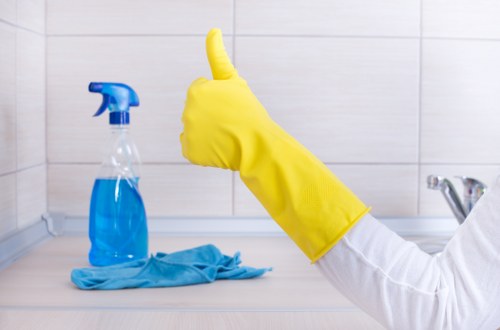
Introduction to Hard Floor Cleaning
Hard floor cleaning is essential for maintaining the longevity and appearance of your floors. Whether it's concrete, stone, or tile, regular cleaning ensures that your surfaces remain spotless and free from damaging elements. Pressure washing is one of the most effective methods to achieve this, offering deep cleaning that goes beyond surface-level dirt.
Unlike traditional cleaning methods, pressure washing utilizes high-pressure water streams to remove stubborn stains, grime, and even embedded contaminants. This technique not only enhances the visual appeal of your hard floors but also contributes to a healthier living or working environment.
In this article, we'll explore the various aspects of hard floor cleaning using pressure washing, including its benefits, suitable floor types, the cleaning process, and tips for maintaining clean floors post-washing.
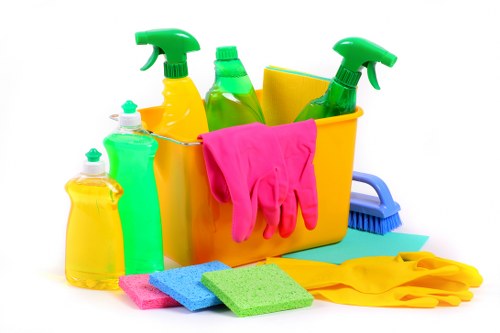
Benefits of Pressure Washing for Hard Floors
Pressure washing offers numerous advantages over conventional cleaning methods. One of the primary benefits is its ability to provide a deep clean that removes not just surface dirt but also ingrained stains and contaminants. This ensures that your floors are not only visually clean but also hygienic.
Another significant benefit is the prevention of damage. Regular pressure washing can prevent the buildup of mold, mildew, and algae, which can cause deterioration over time. By keeping your hard floors clean, you extend their lifespan and reduce the need for costly repairs or replacements.
Moreover, pressure washing is an eco-friendly cleaning solution. It typically requires less water compared to traditional cleaning methods and minimizes the need for chemical cleaners. This makes it a sustainable choice for environmentally conscious individuals and businesses.
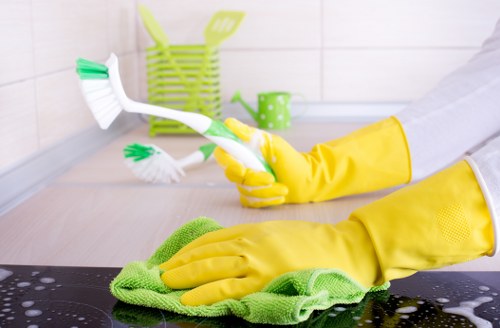
Types of Hard Floors Suitable for Pressure Washing
Concrete Floors
Concrete is one of the most common types of hard flooring found in both residential and commercial settings. Pressure washing is highly effective for cleaning concrete floors, as it can remove oil stains, tire marks, and other stubborn contaminants without damaging the surface.
Stone Floors
Stone floors, including granite, slate, and marble, benefit greatly from pressure washing. The high-pressure water can clean the intricate textures of stone surfaces, removing dirt and ensuring that the natural beauty of the material shines through.
Tile Floors
Tiles, especially in high-traffic areas like kitchens and bathrooms, are prone to accumulating grime and mildew. Pressure washing can effectively clean tiles and grout lines, restoring their original appearance and eliminating potential health hazards.
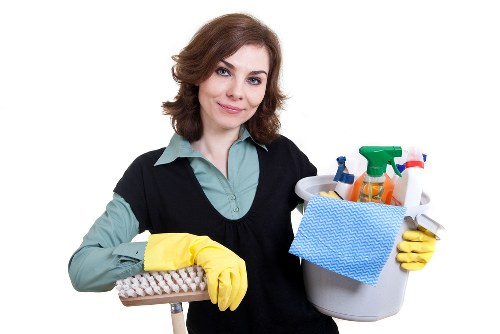
Step-by-Step Pressure Washing Process
Preparing the Area
Before starting the pressure washing process, it's crucial to prepare the area. This involves removing any furniture, debris, or obstacles that might interfere with the cleaning process. Safety first: ensure that electrical outlets and other sensitive areas are properly covered to prevent water damage.
Choosing the Right Pressure Washer
Selecting the appropriate pressure washer is essential. For hard floor cleaning, an electric pressure washer with a PSI (pounds per square inch) between 2000 and 3000 is generally sufficient. Ensure that the equipment is well-maintained and functioning correctly to achieve optimal cleaning results.
Applying Cleaning Solutions
Depending on the level of dirt and the type of floor, you may need to apply a cleaning solution. Use a detergent that is compatible with your pressure washer and safe for your specific floor type. Apply the solution evenly and allow it to penetrate the surface for a few minutes before rinsing.
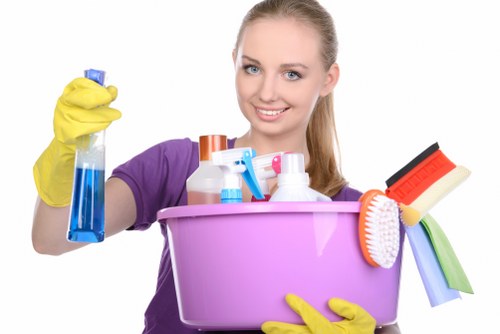
Choosing the Right Equipment and Cleaning Solutions
Having the right equipment is paramount for effective hard floor cleaning. A high-quality pressure washer ensures that you can apply the necessary pressure without causing damage to your floors. Additionally, the correct nozzles and attachments can help target specific areas, providing a more thorough clean.
When it comes to cleaning solutions, it's important to choose products that are safe and effective. For instance, eco-friendly detergents are a great choice as they do not harm the environment and are safe for indoor use. Always follow the manufacturer's instructions when mixing and applying cleaning agents.
Proper maintenance of your equipment also plays a significant role in the cleaning process. Regularly check for wear and tear, replace any damaged parts, and ensure that all components are functioning correctly to maintain the efficiency and effectiveness of your pressure washing efforts.

Common Mistakes to Avoid
Avoiding common mistakes can significantly enhance the effectiveness of your pressure washing efforts. One common mistake is using the wrong pressure setting. Too high a pressure can damage delicate surfaces, while too low may not effectively clean stubborn stains.
Another mistake is neglecting to test a small area first. Testing allows you to gauge the impact of the pressure and cleaning solution on your floor, ensuring that no unintended damage occurs.
Additionally, not maintaining a consistent distance between the nozzle and the floor can lead to uneven cleaning. Keep the nozzle at a steady distance, typically around 12 inches from the surface, to achieve uniform results.

Maintaining Clean Hard Floors After Pressure Washing
Post-cleaning maintenance is crucial to ensure that your hard floors remain clean for longer periods. Regular sweeping or vacuuming can prevent the buildup of dirt and debris, reducing the frequency of pressure washing needed.
Using doormats at entry points can also help in minimizing the amount of dirt tracked onto your floors. Additionally, implementing a routine cleaning schedule tailored to your floor type and usage patterns can maintain their pristine condition effectively.
For commercial spaces with high foot traffic, consider periodic sealing of floors after pressure washing. Sealing provides an extra layer of protection, making it easier to clean and resistant to stains and spills.

Why Choose Professional Services
While DIY pressure washing is possible, opting for professional services comes with numerous benefits. Professionals possess the expertise to handle various floor types and understand the appropriate pressure settings and cleaning solutions required for each.
Moreover, professional pressure washers have access to industrial-grade equipment that can deliver superior results more efficiently. They also ensure that the cleaning process adheres to safety standards, minimizing the risk of damage to your property.
Investing in professional services can save you time and effort while ensuring that your hard floors are cleaned thoroughly and effectively. Their expertise guarantees a level of cleanliness that is hard to achieve with DIY methods.

Conclusion
Hard floor cleaning through pressure washing is a highly effective method to maintain and enhance the appearance of your floors. By understanding the benefits, selecting the right equipment, and following a systematic cleaning process, you can achieve remarkable results.
Whether you choose to undertake the cleaning yourself or hire professional services, the key is consistency and attention to detail. Regular pressure washing not only keeps your floors looking their best but also extends their lifespan, providing long-term value.
Don’t wait any longer to give your hard floors the care they deserve. Contact us today to schedule a pressure washing service and transform your spaces!